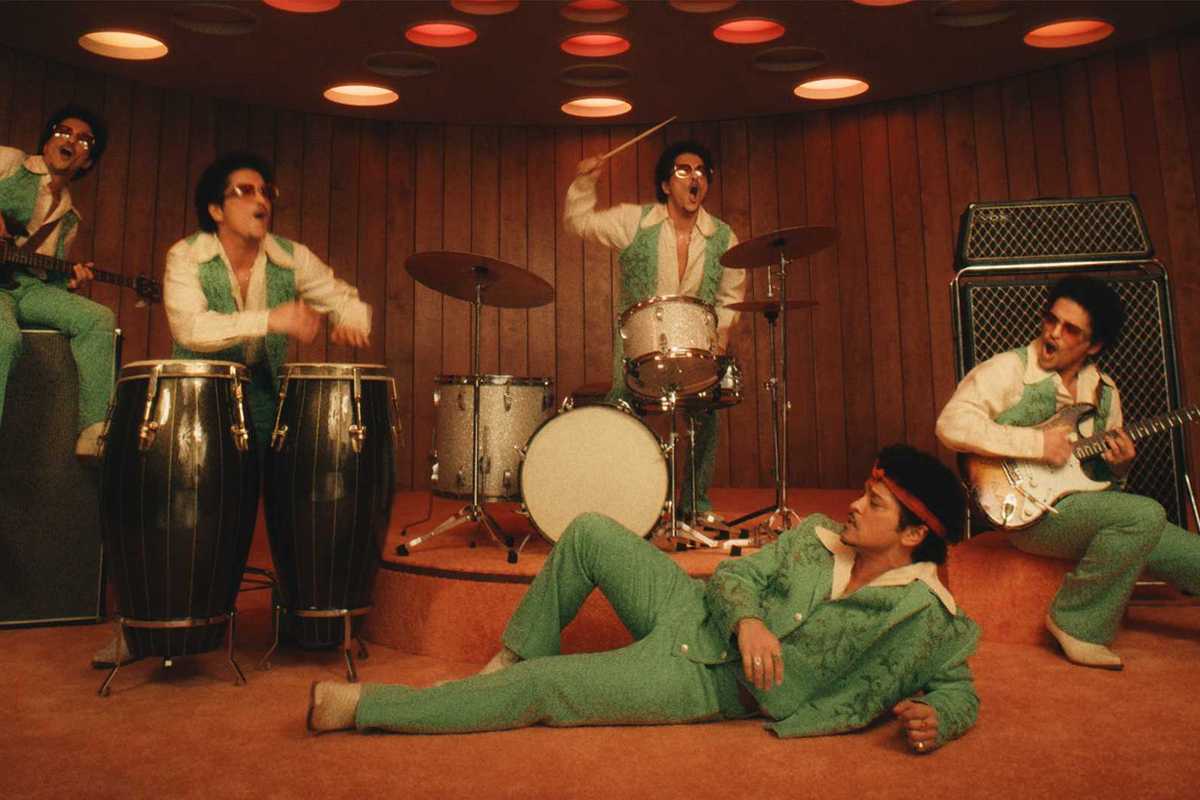advertisement
Billboard is a part of Penske Media Corporation. © 2023 Billboard Media, LLC. All Rights Reserved.
advertisement
Latest News
advertisement
BILLBOARD CANADA FYI
A weekly briefing on what matters in the music industry
By signing up you agree to Billboard Canada’s privacy policy.
advertisement
advertisement
Pop
Bruno Mars Reveals Tracklist For Upcoming Album ‘The Romantic’
The nine-song set marks his first solo release since 2016's 24K Magic.
21 February
After a decade-long gap between solo studio albums, Bruno Mars has unveiled the tracklist for his fourth LP, The Romantic, due Feb. 27.
The nine-song set marks his first solo release since 2016’s 24K Magic. Mars revealed the full lineup Monday (Feb. 16), confirming that the album will be led by “I Just Might,” which debuted at No. 1 on the Billboard Hot 100 — his first career No. 1 debut and his 10th Hot 100 chart-topper overall.
The album arrives during a sustained period of chart momentum for Mars. His collaboration with Lady Gaga, “Die With a Smile,” topped the Billboard Global 200 for 18 weeks and earned a Grammy Award.
advertisement
Meanwhile, “APT.” with ROSÉ spent 19 weeks at No. 1 on the Billboard Global Excl. U.S. chart and 12 weeks atop the Global 200. The track was named IFPI’s biggest-selling global single of 2025 and Apple Music’s most-streamed song globally for the year.
In January 2025, Mars became the first artist in Spotify history to surpass 150 million monthly listeners. He also became the first artist to earn six RIAA Diamond-certified singles in 2022. As of 2026, he holds at least seven Diamond certifications, including “Just the Way You Are,” which is certified 21-times Platinum and ranks as the highest-certified song in RIAA history.
Other Diamond-certified hits include “Uptown Funk” (with Mark Ronson), “Grenade,” “That’s What I Like,” “Locked Out of Heaven,” “When I Was Your Man” and “The Lazy Song.”
Mars has scored 35 Billboard Hot 100 entries, including 10 No. 1 hits. His debut album, Doo-Wops & Hooligans, has logged more than 345 weeks on the Billboard 200 and remains the longest-running studio album by a solo male artist on the chart.
You can pre-save The Romantic and pre-order the exclusive vinyl now.
The Romantic tracklist:- “Risk It All”“
- Cha Cha Cha”
- “I Just Might”
- “God Was Showing Off”
- “Why You Wanna Fight?”
- “On My Soul”
- “Something Serious”
- “Nothing Left”
- “Dance With Me”
This article was first published by Billboard U.S.
advertisement
keep reading
Show less
advertisement
Popular
advertisement
Published by ARTSHOUSE MEDIA GROUP (AMG) under license from Billboard Media, LLC, a subsidiary of Penske Media Corporation.
advertisement

















